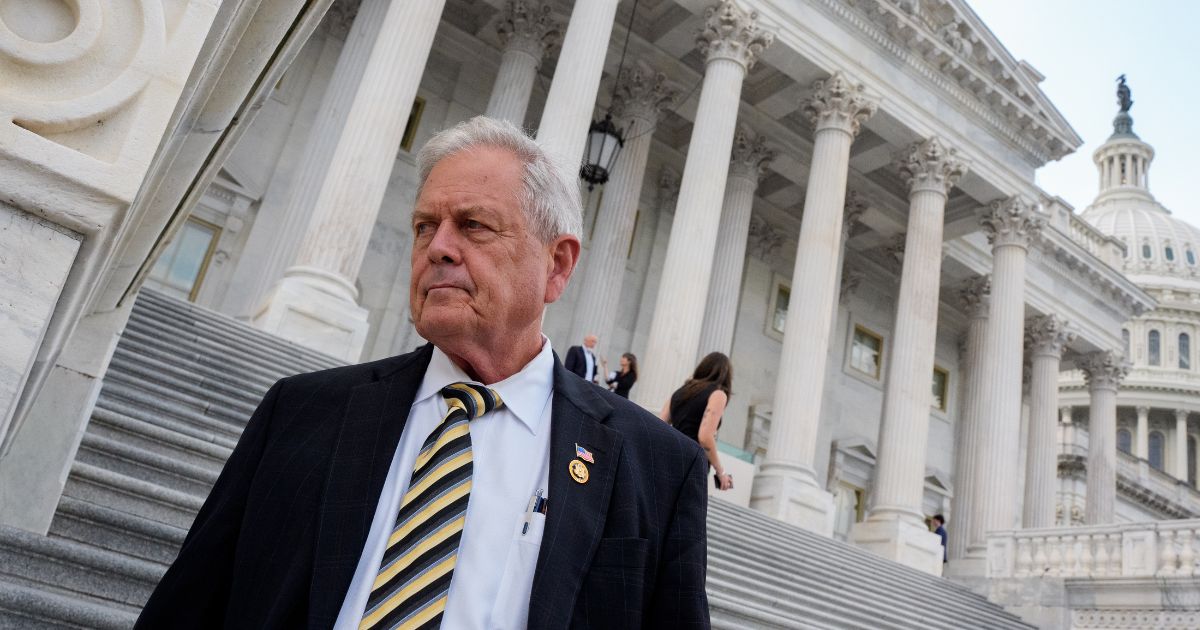Middle Eastern nations descended on Congress to shape defense bill
The article from the Washington Examiner reports that various Middle Eastern nations have actively lobbied the U.S. Congress to influence the National Defense Authorization Act (NDAA) for 2026.Foreign agents paid by countries like Qatar, the United Arab Emirates, Egypt, Bahrain, and the Kurdistan Regional Government have engaged in numerous meetings, calls, and emails with congressional staff to advocate for provisions favorable to their interests. For exmaple, Bahrain’s lobbyists, including former House Foreign Affairs Committee Chairman Ed Royce, met repeatedly with lawmakers and successfully influenced amendments that enhance Bahrain’s strategic relationship with the U.S.
Similarly,the United arab Emirates worked to block proposed restrictions on arms sales linked to concerns about the UAE’s support for paramilitary forces accused of atrocities in Sudan; after lobbying efforts,related restrictive language was removed from the bill. Qatar also achieved provisions to protect funding related to its military facilities and interests in the NDAA. Egypt saw potential increases in U.S. counterterrorism and border security funding through these lobbying efforts.
The article highlights the significant financial investments by these nations in lobbying firms and how foreign agents leverage close ties with lawmakers to shape U.S. defense policy. While some lobbying efforts were unsuccessful or disputed, the overall impact is notable as Congress prepares to reconcile the House and Senate versions of the NDAA, with ongoing influence campaigns expected during negotiations.
Middle Eastern nations lobbied Congress to shape defense bill, won concessions
Foreign agents paid handsomely by Middle Eastern autocrats to represent their interests before Congress have fielded dozens of in-person meetings, phone calls, and emails in Washington in recent months, hoping to win concessions for their benefactors as lawmakers debate the National Defense Authorization Act of 2026, Department of Justice records show.
Between February and August of this year, foreign agents representing Qatar, the United Arab Emirates, Egypt, Bahrain, and the Kurdistan Regional Government reported 19 phone calls, six in-person meetings, and nine email exchanges explicitly regarding the NDAA. The exchanges between congressional staff and foreign agents were followed by tweaks to the defense bill that aligned with the interests of the countries paying the agents.
In one potentially illuminating example, former House Foreign Affairs Committee Chairman Ed Royce, now working as a lobbyist for Brownstein Hyatt Farber Schreck, contacted the office of Rep. Rich McCormick (R-GA) five times between August 26 and August 28 to advocate on behalf of Bahrain, according to DOJ records. This included three in-person meetings and two phone calls, all with the congressman’s chief of staff. On August 29, shortly after his office held a series of meetings with the foreign agent, McCormick proposed an amendment to the NDAA requiring the Secretary of War to commission a report “on the strategic importance and potential expansion of the US-Bahrain Comprehensive Security Integration and Prosperity Agreement,” a measure clearly favorable to Bahrain.
McCormick’s amendment was approved and appears in the version of the defense bill passed by the House in September.
After the Washington Examiner reached McCormick’s office inquiring about whether its foreign agent meetings were related to his amendment concerning the US-Bahrain Comprehensive Security Integration and Prosperity Agreement, a spokeswoman for the congressman confirmed that their discussions involved the agreement.
“As a member of the House Foreign Affairs Committee, Rep. McCormick and his staff regularly meet with representatives of foreign nations, with recent examples including Bahrain, Germany, India, Thailand, and South Korea,” the office said in a statement to the Washington Examiner. “Topics of discussion in the meeting included the U.S.-Bahrain Comprehensive Security Integration and Prosperity Agreement (C-SIPA) signed on September 13, 2023 … Bahrain is the home of U.S. Fifth Fleet and a key ally in the Middle East, and Rep. McCormick will continue to support the United States’ alliances and national security interests abroad.”
Rep. Joe Wilson’s (R-SC) office, which spoke with Royce multiple times about Bahrain via phone, email, and meetings, also confirmed that he played a role in their approach to the NDAA.
“Representative Wilson led a provision with language pertaining to ongoing joint cybersecurity efforts and informed our Bahraini counterparts,” a spokesman for the congressman said. “It’s no secret that Rep. Wilson has had a longstanding relationship with Bahrain, chairing the Bahrain caucus and supporting efforts regarding mutual defense, economic, and security cooperation. As you know, the United States maintains longstanding bilateral diplomatic and military relations with Bahrain, a key partner and signatory to the Abraham Accords. Bahrain hosts the Fifth Fleet and is engaged in critical counterterrorism operations with the United States.”
Bahrain shells out serious cash to retain talent like Royce.
In its most recent contract filed with the DOJ, Brownstein reported receiving $65,000 monthly from Bahrain for lobbying services. Bahrain also entered into a contract paying Brownstein an additional $15,000 monthly for public relations work.
The actual number of contacts between foreign agents and congressional offices is likely greater than what reports that explicitly mention the NDAA suggest, as agents have considerable license to be vague in describing the purposes of their meetings with lawmakers. Foreign agents working for Middle Eastern countries, for instance, have recently reported hosting members of Congress involved in defense bill negotiations at several events, embassy visits, exclusive dinners, and cigar nights, without disclosing specifically what was discussed at said meetings. Further, some contact reports had unclear descriptions, such as “U.S.-Egypt relations,” leaving ambiguity about what was actually discussed.
However, reports that explicitly name the NDAA provide insight into which countries are particularly interested in the defense bill and how they may have shaped the drafts currently under consideration by both chambers.
For instance, descriptions of operations by foreign agents contracted by the United Arab Emirates are uncharacteristically detailed. Emirati foreign agents working through American Defense International contacted the chief of staff to House Armed Forces Committee Chairman Mike Rogers (R-AL) twice in July, once over the phone and once in person. Emirati foreign agents also had an in-person meeting and email exchange with the staff director for the House Armed Forces Committee in May and July, respectively.
According to documents filed with the DOJ, the purpose of these liaisons was to discuss “possible amendments to NDAA in full committee markup restricting arms transfers to the UAE.”
The meetings with Rogers’s staff occurred in the context of legislation introduced by Rep. Sara Jacobs (D-CA) and Sen. Chris Van Hollen (D-MD) in March seeking to block arms exports to the United Arab Emirates until the United States could establish that the Emirati government is “not providing materiel support to the Rapid Support Forces in Sudan.”
The RSF is a paramilitary force operating in East Africa, which the United States accused of genocide following reports of ethnic cleansing, mass rape, and systemic killings. Press reports have identified the UAE as one of the primary backers of the RSF, a charge the Emiratis deny.
After ADI met with the top Republican on the influential House Armed Services Committee, responsible for drafting the NDAA, language from Jacobs’s legislation, which potentially restricts the UAE’s access to weapons, did not appear in the defense bill’s final text.
The House Armed Services Committee’s communications director declined to comment on the specifics of their contact with the Emirati foreign agent, stating that “the FARA disclosure itself covers the topics of those discussions.”
The UAE, like Bahrain, pays considerable sums to secure effective lobbyists. For instance, ADI’s most recent contract with the nation shows it was paid nearly $50,000 per month for its services.
Not all foreign lobbying efforts were effective, however.
Brownstein deployed a foreign agent to arrange a phone call with Rep. Dina Titus (D-NV) via email on August 26, seeking to discuss a possible amendment to the NDAA. The congresswoman’s communications director told the Washington Examiner that the office did not respond to their email.
Additionally, the staff director of a congressional foreign affairs subcommittee disputed FARA records, stating that he had phone calls with Royce, the Brownstein foreign agent and former committee chairperson, about the NDAA on behalf of Bahrain. He said the calls did not relate to the defense bill or Bahrain. Brownstein, however, told the Washington Examiner that the “issues discussed were process-related to the NDAA.”
The staffer disclosed that Royce was his former boss, which shows how foreign governments exploit their agents’ prior experience to maximize impact.
Qatar, which has been the focus of much critical press recently owing to its sizable D.C. influence network, also walked away from Congress’s initial NDAA deliberations with a few victories.
Foreign agents working for Qatar via BGR Government Affairs and Holland & Knight had a series of phone calls and email exchanges with top staffers on the House and Senate Armed Services Committees between March and May regarding the NDAA and its amendments, DOJ records show.
Following these contacts, the House and Senate voted down amendments that would have blocked funding to retrofit the Pentagon’s recently acquired Qatari plane into Air Force One. Meanwhile, the House’s version of the NDAA includes a provision ordering the Secretary of War to commission a report on Al Udeid Air Base in Qatar and potentially recommend providing additional missile and air defense resources, enhancing security in the country.
With a significant presence of foreign agents in Washington, Egypt also won possible increases to U.S. counterterrorism and border security funding in the NDAA.
MICROSOFT, POLITICALLY CONNECTED, SEEKS TO ALTER CHINESE INVESTMENT PROVISION IN DEFENSE BILL
The Senate passed its version of the 2026 NDAA on October 9, following the House’s passage of its defense bill in September. With both pieces of legislation clearing their respective chambers, representatives from the two bodies now must meet and negotiate a compromise bill to reconcile any differences. This process will undoubtedly see further influence efforts from foreign agents and run-of-the-mill lobbyists alike.
" Conservative News Daily does not always share or support the views and opinions expressed here; they are just those of the writer."


